While tales of environmental degradation through books, documentary film-making or radio bulletins can certainly have compelling effect, the unique experiences offered by augmented and virtual realities are opening up entirely new possibilities when it comes to getting a message across. Phoria is an Australian startup working to leverage these immersive technologies to take its users to entirely new places, in hopes of creating lived experiences that can become drivers of change. New Atlas sat down with CEO Trent Clews-de Castella to discuss these ambitions, and where the company's "mixed reality" experiences might be taking people in the future.
Immersive media company Phoria got its start in 2014 and primarily focused on real estate applications, but soon started to set its sights on other areas including medicine, the environment and even Christmas-themed experiences for kids in Melbourne's city center.
As it expanded its portfolio and its technology advanced, the company started to attract the attention of some big names. Locally, this included the Melbourne's Royal Children's hospital who are interested in using VR to help patients deal with anxiety and prepare them for treatments, Facebook Australia who are looking build AR experiences for businesses and even the West Australian Ballet, who sought to create AR filters that go over its physical brochures.
More recently, and perhaps more notably, the company has partnered with Netflix, Google and the World Wildlife Fund to build an augmented reality experience based on the documentary series Our Planet. Narrated by David Attenborough, this original Netflix series from 2019 looks at how climate change is transforming ecosystems all around the world, and Phoria was tasked with imagining a scenario in which these ecosystems might be transformed for the better.
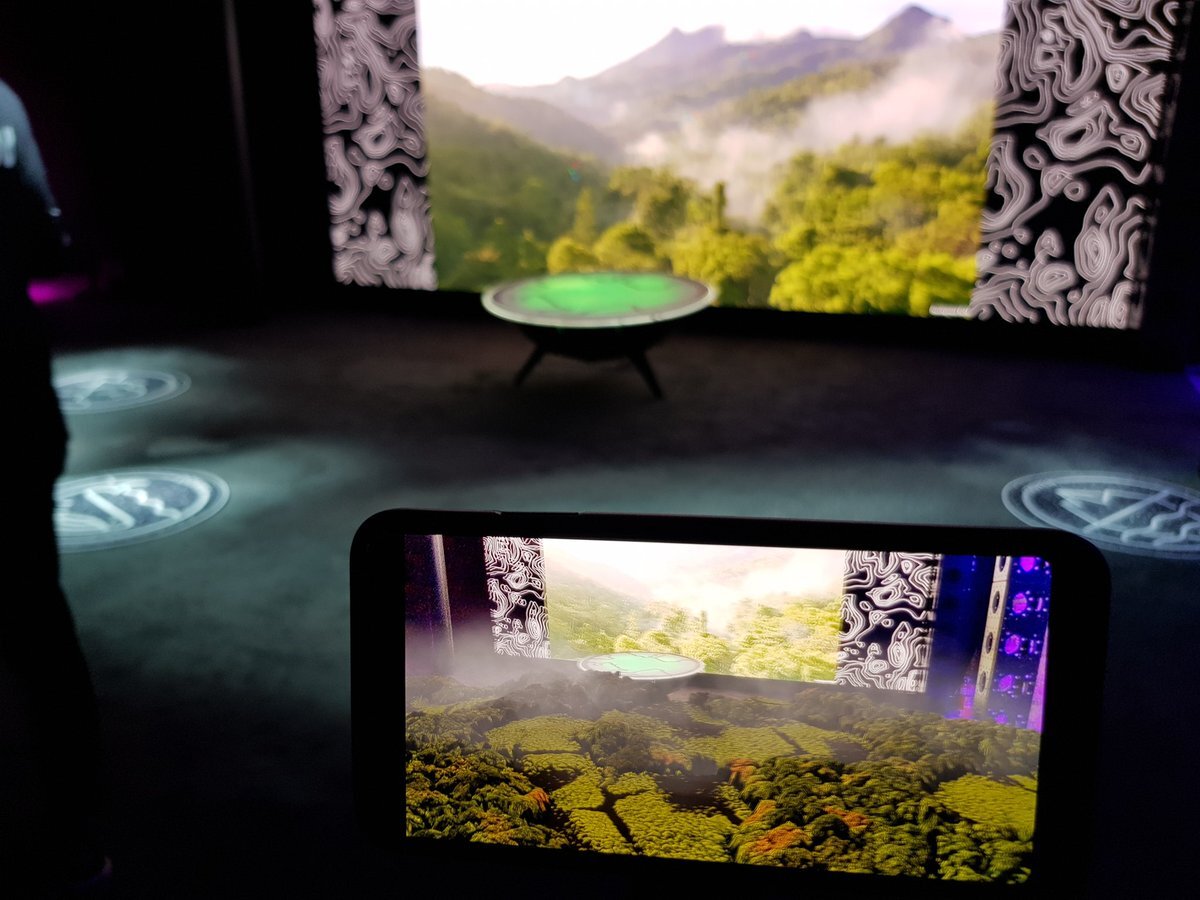
The project is called Rewild Our Planet, and seeks to connect users with the issue of environmental degradation by placing them in the thick of the action. After observing the damage taking place, users can then play a role in helping the landscape recover, by reforesting a destroyed jungle, for example. With installations already in Singapore, New York and the UK, Phoria brought its Rewild Our Planet experience to Melbourne's Pause Fest, where we caught up with Clews-de Castella to chat all things "mixed reality," past, present and future.
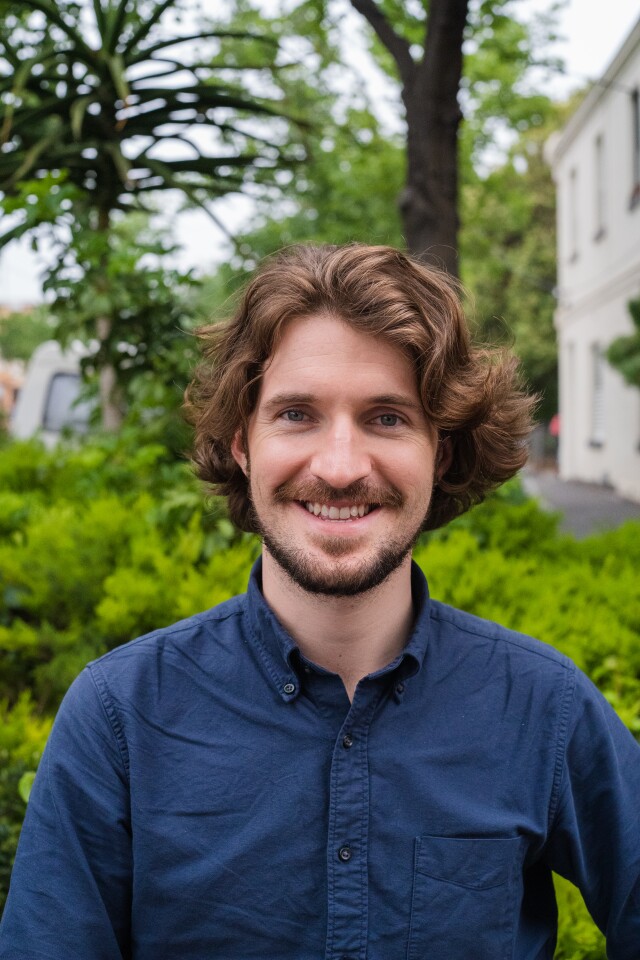
Below is a transcript of our conversation that has been lightly edited for readability.
New Atlas: What kind of emotions are you hoping to draw out of people by creating these experiences? Is this something you give a lot of thought to?
Clews-de Castella: My background originally was in psychology, and so we're looking a lot at positive psychology, mindfulness-based stress reduction and really how we could better harness the power of the mind to help the way that we feel physically. Along the way, in terms of behavioral change, we're not prescriptive in a way where we're like "ok this is going to reduce the amount of plastic you consume," but we really feel that through an experience, a story and a narrative, you can actually open people up to take the first step.
So, it's not going to necessarily translate to a moment when everybody stops using straws, but it could actually help people take that next step and perform more research. So with that in mind it's definitely a starting point. With that all aside, I think the main thing we want to instill in users is inspiration to uplift and to shine a light on the positive stories that are in the world, because it feels like our reptilian brains are prescribed to tune into the negative fear response that is constantly in the media, and so how do you facilitate and create an experience that empowers people so they actually feel motivated and like they can make a difference?
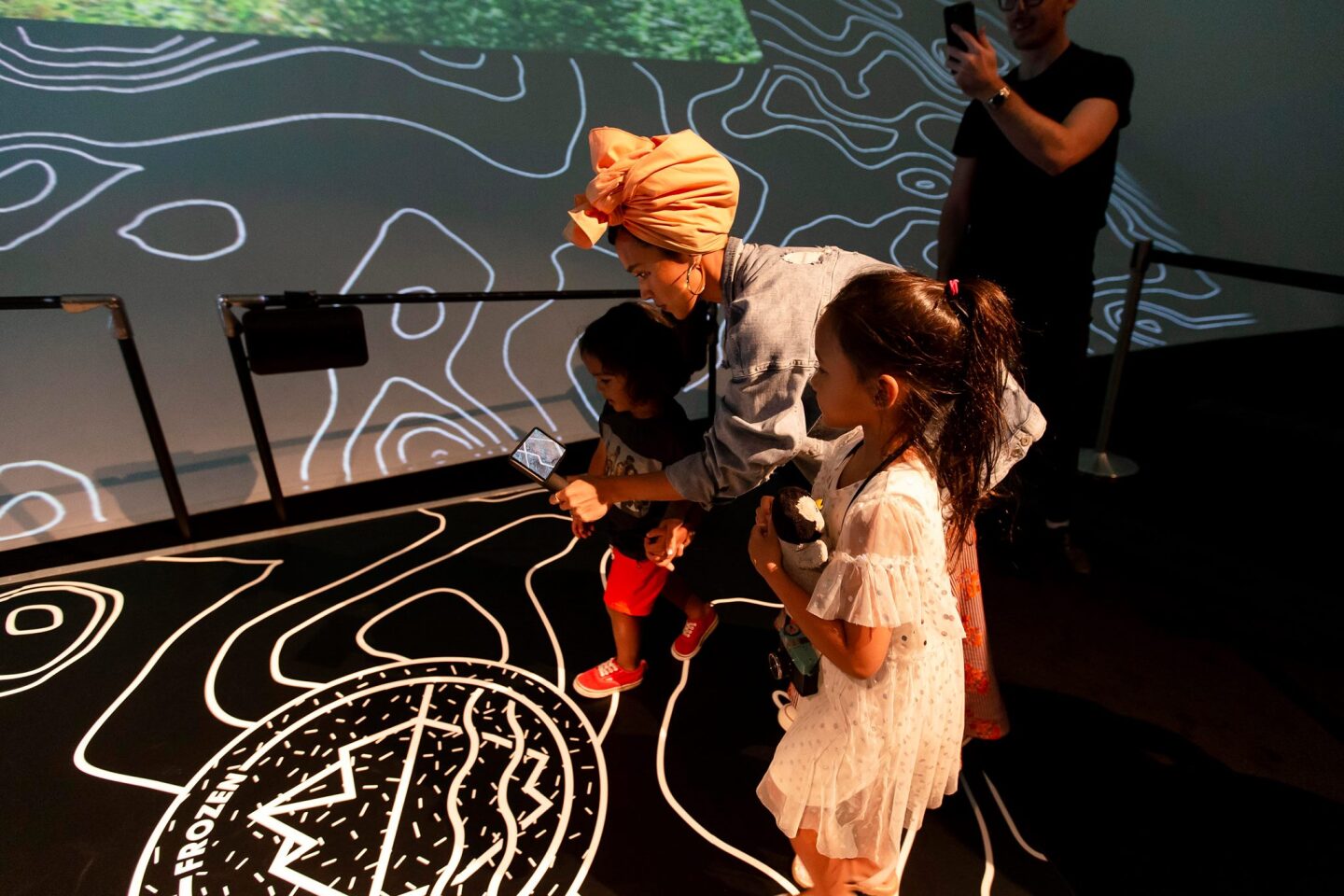
Rewild is a really great example, where it's like "ok we've seen the damage, we know what we need to do to act." And a newer project we're working on is very much on a personal level, taking you into these ecosystems and these environments, where you meet the change-makers and you sit in front of them and look them in the eyes and you have this connection that is felt almost on an empathic level, so yeah we're kinda going down these two paths. Sharing them at events like Pause Fest, we're able to to start measuring and benchmarking the two and see what's more effective as a tool for conservation and behavioral change.
What are some of the recent advances in technology that have made an experience like Rewild possible?
A lot of the major changes happened in 2019. We see ourselves as XR (extended reality), which is the spectrum that covers VR and AR. So the main change in VR has been the price points coming down, the form factor improving so that it is lighter and smaller, the content is a lot more engaging and also it is wireless, so you're not tethered to a computer. You don't have to set it up, you put it on and you're in this new world. If you think about the steps to engage, or jump into that new experience, it has gone from like 10 steps to one step. So that throughput is really good.
And then with AR, for projects like Rewild Our Planet, we've seen an insane amount of change. When we started in AR it was like QR codes, you point your phone at a QR code and it would recognize a pattern like a barcode, and then load an object. What we've seen in the last 12 months are that our phones firstly don't rely upon looking at a QR code, it's actually recognizing the environment. So it might be recognizing this as a table and then you could drop whatever you want on this table and it would sit there, or maybe for instance you are walking through a furniture store and you're looking at a chair and it might recognize that product and give you more information about it. So that's a different type of intelligence that is almost human in that sense.
The last piece is called cloud anchors, and that means I could set up an environment here with my phone by walking around and scanning the scene at my feet. Then you'll do the same, scan around with your phone at your feet and I'll go "hey we're actually looking at the same thing," and we'll be able to link in like you would in a chat room. We can embed and author content on top of it. So if we're architects and we're trying to model up a new building, what you're drawing i can see through my phone and we can kind of co-create in that way.
Can you speak a little bit about VR as a storytelling medium and where it might be going?
The way we try and frame it is as experiential storytelling, looking at this cognitive theory where you have two types of experiences, one that is very much in the mind, and one that is physically felt. So traditionally, a lot of the stuff that we're perceiving through media is in the mind, but then with things like virtual reality you're actually tricking the brain into feeling like it's much more a lived experience.
You see people reaching out to touch something even though they know it is not there. In terms of the lived experience, specifically with climate change as a theme, we found when we were in Singapore for Rewild, which at the time was in a huge smog from a lot of the deforestation in Asia, they had a lived experience of the consequences of deforestation so the people were much more motivated to do something about it.
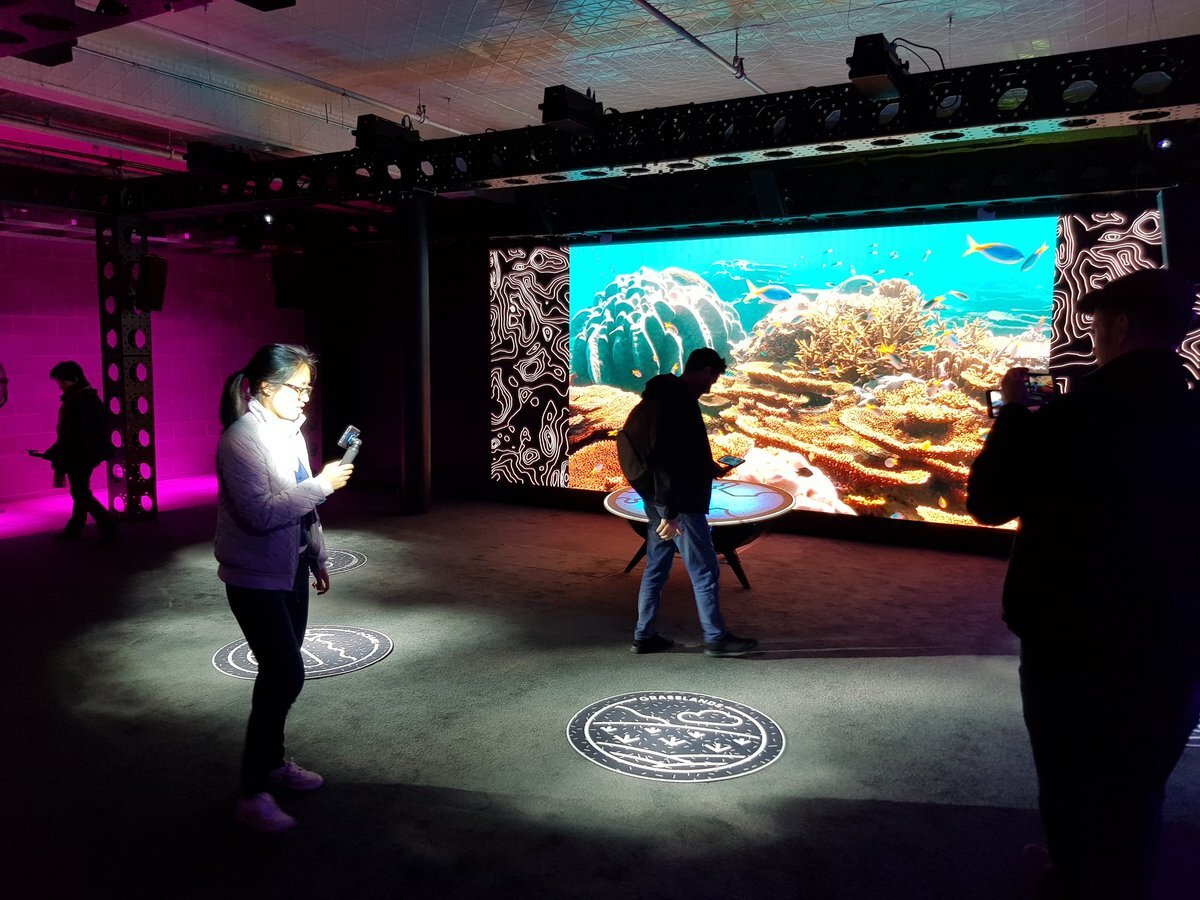
In Australia, we'd hear about deforestation in the news and we're not having any kind of lived experience in that way. So the thought really simply is through these new mediums, virtual, augmented and mixed reality, you can actually feel it on a very deep and personal level that is akin to what is a real life experience. That's the rationale and why a lot of the research we're doing is trying to really uncover that and better understand it. It's kind of like a gut instinct, and until it is empirically understood we can only really have our best guess.
You are obviously placing a big focus on the environment right now through Rewild, but what other issues can his technology help solve or raise awareness about?
I feel like there are these two different streams. Virtual reality without a doubt is one of the most powerful tools for empathy that exists. You can literally put on a headset and you can step into someone else's shoes and see the world through their eyes. A really good example was a VR experience called Clouds of Sidra. It's about a Syrian refugee in a Jordanian refugee camp. Basically they filmed a piece and you're sitting in her hut and you're looking eye-to-eye, listening to her story and you understand the struggle she's been through. Really, what that does is it humanizes her and makes her relatable in a way where you feel a connection.
They took this experience to the UN economic forum and they had a whole bunch of political leaders go through this experience and then vote on the refugee policies for Syrian refugees. You had a massive shift because it wasn't like numbers on a page, it was someone that they had sat with and connected with in a personal way.
I also think mental health is going to be really interesting. There are things around people living with autism, and how you can look at the sensory stimuli that they are exposed to and find ways to help them feel more comfortable in public spaces. With mental health as well, the more connected we've become, the more depressed and anxious we also become. So how do we strike a balance in a way where I could be in my office, and then I could put on a headset and go out into the rainforest and just fully relax and switch off for 15 minutes? I feel like these types of technologies will really translate into more well being on an individual level.
That's VR. On the AR side I really feel like it's definitely going to transform the way people do their jobs, because you'll have more meaningful information at your fingertips that you'll be able access in real time. One example is the factory worker of the future, let's say they have to find out what the temperature is on one of the pumps. Typically, what they'd have to do is find the pump, find the sensor on the pump, find the number on the sensor, go back to the office, look it up on the dashboard. Instead, you could be in the pump station, pull up your phone and it recognizes the pump, then it visualizes in real time the information. So that kind of bridge is instant and can help people directly connect and make those more informed decisions, smarter and faster.
What do you think these kinds of experiences will look like in 10 years?
What we're really keen to see now is how it will be integrated more strategically into organizations, and into the way we live as individuals. A good example, and one of the coolest things I've seen in AR is called Google Lens, and the way that works is you use your camera and you'll point it at an object and it will go, "oh thats a pot plant or thats a chair, here's a similar pot plant, here's a similar chair." In the future, maybe we're wearing smart glasses and we're able to tap into information that's almost seamless in the background, so you might just look at the plant and go "what plant is that" and then it's instantly giving you the information without you really having to do anything or open anything. It would just be seamless.
I'd also like to think a lot of that friction in how technology is integrated within social settings is going to be removed and its actually going to be in the background rather than in the foreground. You've seen things like Google Glass and everyone assumed that it was mixed reality, like smart glasses. It was effectively a little screen in your top periphery that was like a hands-free display, whereas mixed reality by today's definition is embedded within the space and around you.
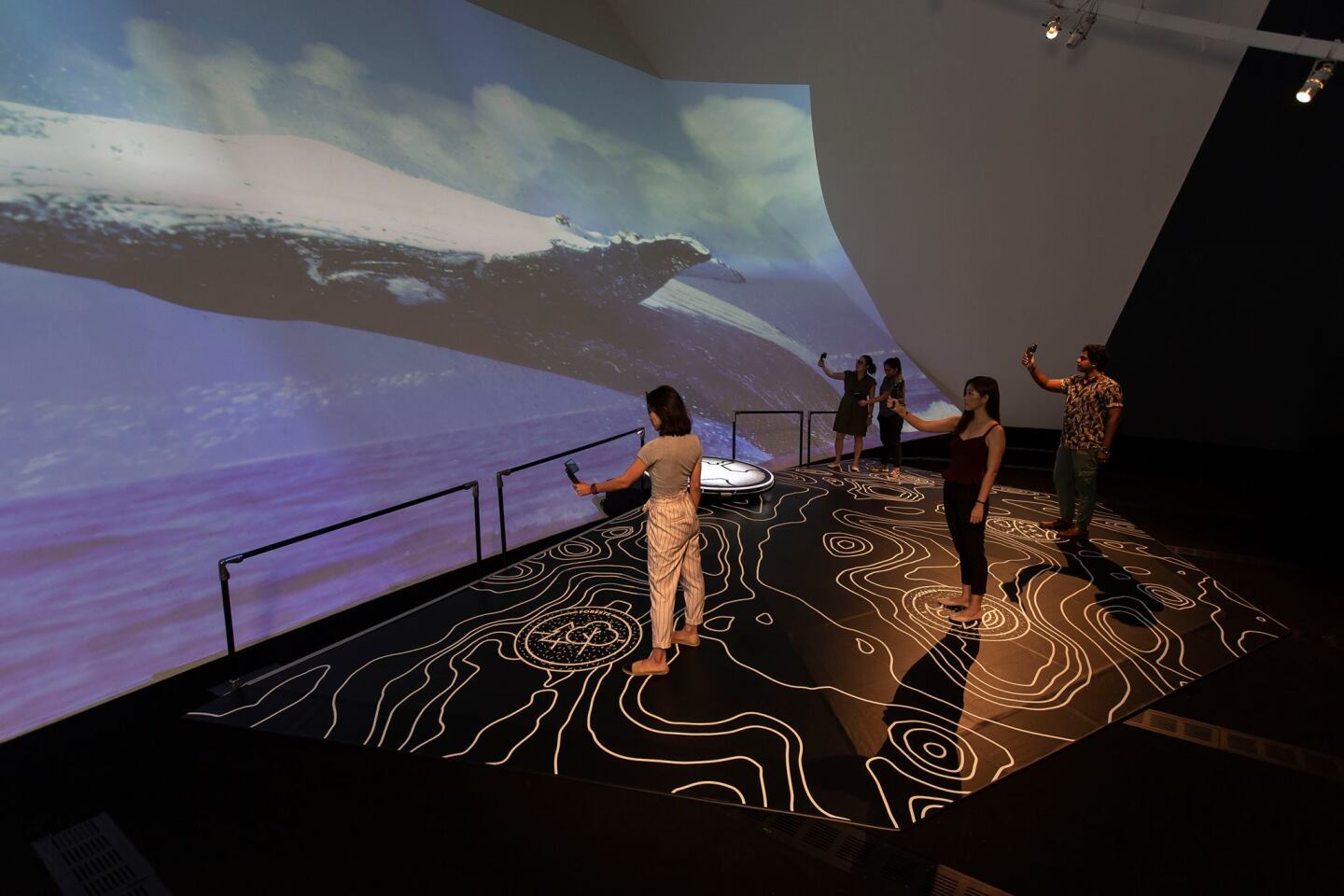
So you're literally seeing holograms and you drop something on the table and you knock it off and it's going to respond to the space around you, so we're going to shift. Right now you've got Amazon, Intel, Google, Microsoft and Apple, they're all working on smart glasses. It's going to be bigger and more game-changing than smartphones. I believe in 10 years we'll have these seamless handsfree heads up displays and the content, we'll be able to filter and personalize it in a way so that it's not going to be exploited. We're going to have complete control over the type of content that we want to interact with.
And then really, I just hope that it is going to help us connect. It's going to help us do our jobs more efficiently, we'll have more time to actually engage with people and think about the future of work. You might be able to chime into a factory and then help someone virtually rather than physically having to be there. In summary, it's going to shift from novelty into the mainstream utility phase as it democratizes.
More information: Phoria











